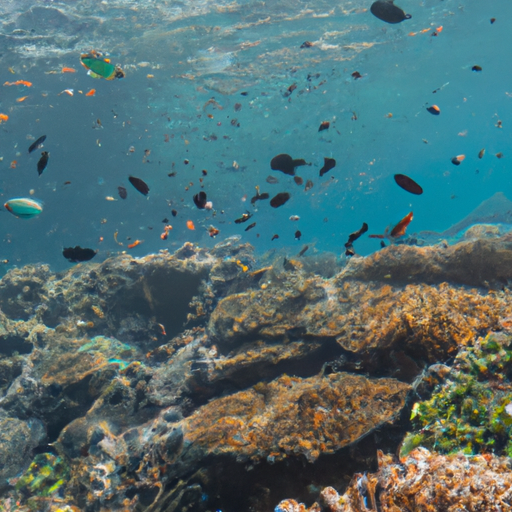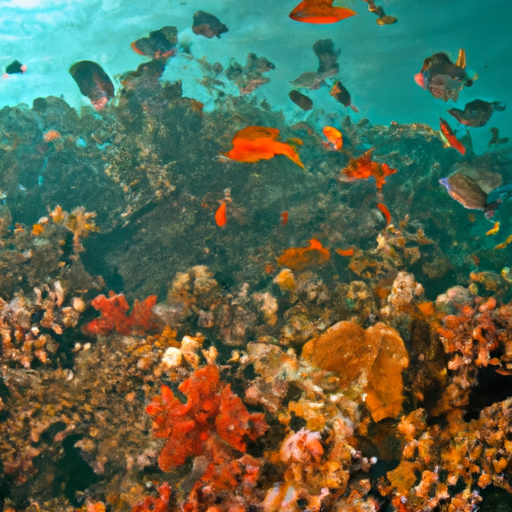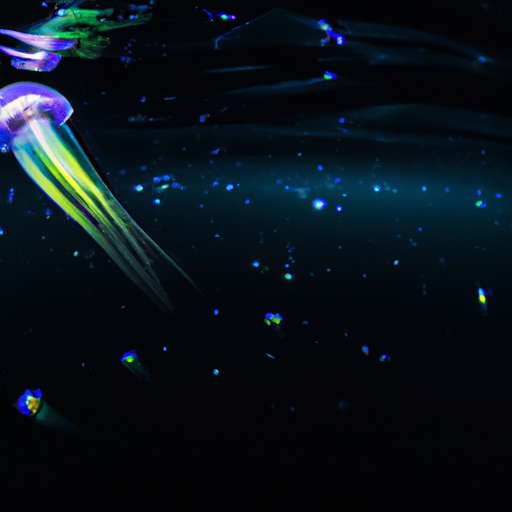
The Role of Marine Life in Maintaining Ecosystem Balance
Marine life plays a crucial role in maintaining the balance of ecosystems in our oceans. It is important to understand the fragile nature of these ecosystems and the need to protect marine life. The oceans are home to a rich diversity of species, from microscopic phytoplankton to huge whales, and each organism plays a unique role in the functioning of the ecosystem.
One of the key reasons why protecting marine life is important is because of the interconnectedness of the marine ecosystem. Many species in the ocean rely on each other for survival. For example, phytoplankton, which are tiny plants, form the base of the food chain. They are consumed by zooplankton, which in turn are eaten by small fish, which are then preyed upon by larger fish. This intricate web of interdependencies ensures the flow of energy and nutrients throughout the ecosystem.
Another reason to protect marine life is the role it plays in mitigating climate change. Marine plants such as seagrasses and algae absorb carbon dioxide from the atmosphere through the process of photosynthesis. They act as carbon sinks, helping to reduce the amount of greenhouse gases in the atmosphere. Additionally, coral reefs act as natural barriers against storm surges and coastal erosion, protecting human populations and infrastructure.
Marine life also provides important ecosystem services that directly benefit humans. For example, fisheries provide a source of food and income for millions of people around the world. Healthy ocean ecosystems are essential for fish populations to thrive and ensure sustainable fishing practices. Additionally, marine biodiversity has the potential to provide valuable resources for medical research and the development of new drugs.
However, marine life and its fragile ecosystems are facing numerous threats. Overfishing, pollution, habitat destruction, and climate change are all taking a toll on the health of our oceans. It is crucial that we take action to protect and conserve marine life for the benefit of both the environment and future generations.
In conclusion, understanding the importance of protecting marine life is essential for maintaining the balance of ecosystems in our oceans. The interconnectedness of marine species, their role in mitigating climate change, and the invaluable ecosystem services they provide are all compelling reasons to prioritize their conservation. By taking proactive steps towards sustainable practices and raising awareness about the fragility of marine ecosystems, we can ensure the continued health and resilience of our oceans.
Threats to Marine Life: Pollution, Overfishing, and Climate Change
The oceans are home to a vast array of diverse and fascinating marine life, from the smallest plankton to the largest whales. However, these fragile ecosystems are facing numerous threats that pose significant risks to their survival. Pollution, overfishing, and climate change are three of the most pressing issues affecting marine life today.
Pollution, particularly from plastic waste, is having devastating effects on marine life. Millions of tons of plastic end up in the oceans each year, putting marine animals at risk of entanglement, ingestion, and habitat destruction. From sea turtles mistaking plastic bags for jellyfish to seabirds with their stomachs full of plastic debris, the impact of pollution on marine life is severe and widespread.
Overfishing is another significant threat to the ecosystems of the oceans. As global demand for seafood continues to rise, fishing fleets are depleting fish stocks at an alarming rate. This not only threatens the survival of commercial fish species but also disrupts the delicate balance of marine food webs. Overfishing can lead to the collapse of entire ecosystems, with devastating consequences for marine life and the livelihoods of coastal communities.
Climate change is perhaps the most complex and far-reaching threat facing marine life. Rising temperatures, ocean acidification, and sea-level rise are all directly linked to climate change and have profound impacts on marine ecosystems. Coral reefs, for example, are highly sensitive to temperature changes and are experiencing widespread bleaching events, leading to the loss of vital habitat for countless marine species. Additionally, changes in ocean chemistry from increased carbon dioxide absorption are affecting the ability of many species to form and maintain their shells, leading to widespread disruption of marine food chains.
Protecting marine life is of paramount importance to maintain the health and balance of our oceans. These delicate ecosystems provide numerous benefits, including oxygen production, carbon sequestration, and the regulation of global climate patterns. In addition, marine life supports countless livelihoods through fishing, tourism, and research.
Efforts to protect marine life must focus on reducing pollution, implementing sustainable fishing practices, and addressing the root causes of climate change. This includes improving waste management systems to reduce plastic pollution, establishing marine protected areas to safeguard vulnerable habitats, and transitioning to cleaner, renewable energy sources to mitigate the effects of climate change.
By understanding the fragile ecosystems of the oceans and taking action to protect them, we can ensure the survival of marine life for future generations to come.
The Economic and Social Importance of Preserving Marine Life
Understanding the fragile ecosystems of the oceans is of utmost importance when it comes to protecting marine life. The diverse and interconnected web of life that exists beneath the surface of the seas plays a vital role in sustaining our planet’s health and well-being.
Marine life encompasses a wide range of species, from microscopic plankton to majestic whales, along with coral reefs, seagrass beds, and kelp forests. These ecosystems provide numerous ecosystem services that are critical to human survival, such as food security, climate regulation, and the production of oxygen.
One key aspect of protecting marine life is recognizing the interconnectedness of these ecosystems. Coral reefs, for example, act as nurseries for many fish species and provide habitats for countless other organisms. They also act as natural barriers, protecting coastlines from erosion and buffering the impacts of storms. When coral reefs are damaged or destroyed, the ripple effects are felt throughout the entire food chain.
Kelp forests are another example of a vital marine ecosystem. They provide shelter and food for numerous marine species and play a crucial role in carbon sequestration, helping to mitigate climate change. When kelp forests are damaged by pollution, overfishing, or climate change, the consequences can be devastating for both marine life and the communities that rely on these ecosystems for their livelihood.
Protecting marine life also means addressing the threats posed by human activities such as overfishing, habitat destruction, pollution, and climate change. Overfishing can disrupt entire food chains and lead to the collapse of fish populations. Habitat destruction, such as bottom trawling or dynamite fishing, destroys essential habitats for marine species and disrupts delicate ecosystems.
Pollution, particularly from plastic waste and chemical pollutants, has detrimental effects on marine life. Plastic debris can entangle and suffocate marine animals, while chemicals can accumulate in their tissues, leading to long-term health problems. Climate change, with its rising sea temperatures and ocean acidification, poses additional challenges for marine life, disrupting ecosystems and threatening the survival of many species.
Preserving our marine life and protecting these fragile ecosystems requires a multi-faceted approach. It involves the establishment of marine protected areas, sustainable fishing practices, reducing pollution, and taking action to mitigate climate change. It also requires international cooperation and public awareness to foster a sense of responsibility and stewardship for our oceans.
In conclusion, understanding the fragile ecosystems of the oceans and the importance of protecting marine life is crucial for ensuring the long-term health and well-being of our planet. By recognizing the interconnectedness of these ecosystems and taking action to address the threats they face, we can help preserve the incredible biodiversity and ecosystem services provided by our marine environments.
How Individuals Can Contribute to Protecting Our Oceans
Protecting our oceans is crucial for the health of our planet. As individuals, we have a responsibility to understand and appreciate the importance of marine life and the fragile ecosystems that exist within our oceans. By being aware of the impact we have on the oceans and taking proactive steps to protect them, we can ensure the long-term sustainability of these vital ecosystems.
Marine life plays a critical role in maintaining the balance of our planet’s ecosystems. From providing a habitat for countless species to contributing to the global food chain, the oceans are a fundamental part of the Earth’s biodiversity. Coral reefs, for example, are often referred to as the “rainforests of the sea” due to their incredible diversity and importance in supporting various marine species.
Unfortunately, human activities such as overfishing, pollution, and habitat destruction pose significant threats to marine life. Overfishing disrupts the delicate balance of ocean ecosystems by depleting fish populations, which can have cascading effects throughout the food chain. Pollution, including plastic waste and chemical contaminants, not only directly harms marine organisms but also contributes to the degradation of coral reefs and other essential habitats.
Understanding the interconnectedness of marine life is vital in recognizing the need for action. Every species, no matter how small or seemingly insignificant, plays a crucial role in maintaining the overall health of the oceans. For example, phytoplankton, microscopic algae found in the oceans, are responsible for producing a significant portion of the world’s oxygen. Without them, marine life, as well as human life, would be severely impacted.
So, what can individuals do to contribute to the protection of our oceans? The first step is raising awareness and educating ourselves and others about the importance of marine life and the threats it faces. By supporting organizations and initiatives focused on ocean conservation, we can have a collective impact on protecting these fragile ecosystems.
Reducing our personal carbon footprint is another essential step in protecting marine life. Climate change, driven by greenhouse gas emissions, is leading to rising sea levels, ocean acidification, and increased water temperatures, all of which have detrimental effects on marine ecosystems. By making conscious choices to reduce our energy consumption, support renewable energy sources, and minimize our use of single-use plastics, we can help mitigate the impacts of climate change on the oceans.
Additionally, supporting sustainable fishing practices and responsible seafood consumption is crucial. Choosing certified sustainable seafood options and avoiding endangered or overexploited species can contribute to the preservation of fish populations and ensure the long-term health of marine ecosystems.
In conclusion, protecting marine life and the fragile ecosystems of the oceans is of utmost importance. By understanding the interconnectedness of these ecosystems, raising awareness, reducing our carbon footprint, and supporting sustainable practices, we can all play a part in safeguarding the health and vitality of our oceans for future generations.


